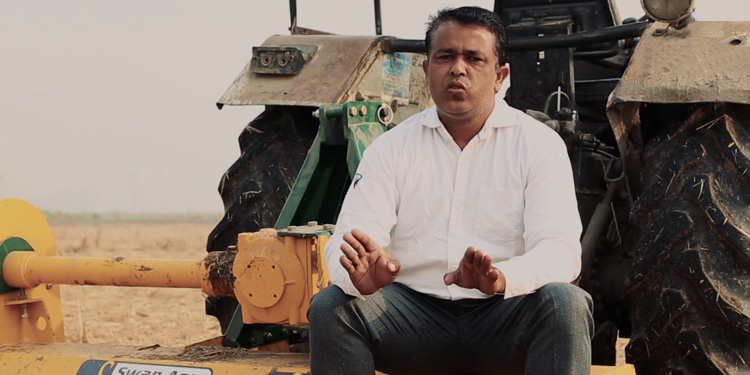
Inspiring Change from within the Community
Apart from vehicular and industrial emissions, one of the major contributors to the problem of deteriorating air quality is the stubble burning prevalent in the northwestern states leading to the periodic and a meteoric rise in air pollution during the post monsoon season. 39 million tonnes of paddy straw is burnt every year. The practice of crop residue burning is detrimental to the environment as well as the farmers’ income margins.
CII and CII Foundation (CIIF) have been creating small ripples in the vast sea of change by engaging industry, government, and the farming community of Punjab and Haryana through the Crop Residue Management Initiative. In 2018, CII Foundation undertook a pilot intervention in 19 villages and 16,000 acres of farmland in Punjab, which has been scaled up to cover over 1 lakh acres of farmland across 147 villages across Punjab and Haryana. Constant engagement with farmers, handholding, and awareness among the farming community has led to adoption of the alternate technology and the sustainable agricultural practices across 93% of the adopted farmland.
Reflecting on the transformation being brought through this initiative, one such story of transformation is of a marginal farmer in the Govindpura village of Patiala district in Punjab – Nambardar Amandeep Singh. Amandeep has 5 acres of land and has been involved in farming for 15 years. Every year, after the harvesting, he would burn the stubble, but he decided to stop after seeing the negative effects it had on the environment and production. However, the lack of suitable alternatives prevented him from going further than wishful thinking.
“The Happy Seeder, Mulcher, Zero Till, MB Plough have been very helpful in managing the crop stubble,” said Amandeep. “I have been using these machines for two years. This year, I have harvested 23 quintals wheat per acre, which is 10-15% more than last year, and the health of the soil is also much better,” he rejoiced. “I can use MB plough now to cut the straw, clamp them and make biogas as well as manure to use it in the fields. I feel great, now that I can sow the seeds of potato/wheat the very next day after clearing the stubble.” Amandeep further added, "using these machines has also reduced the weedicide and farm inputs requirement in the field. MB plough has also made my crops more resistant to excess rainwater and hailstorm which wreaked havoc in the crops earlier but now the stored straw absorbs the excess water and saves the crops.”
Amandeep feels a great sense of pride when he is using these in situ machines in his farm and encourages other farmers to do the same. “People come to my farm whenever I use these machines and watch me work. They are surprised by how efficiently the machines work and capture videos while I am ploughing the field with MB plough. I love telling them about these machines and help them learn about it so that people can also avoid burning the stubble,” he said. Seeing his increased yield and cost efficiency, people from the nearby fields are also adopting the new machines to cut the straws in a similar fashion and are happy to be a part of the change.
Amandeep shared his first experience with MB plough when he was still learning to use the machines, “I could make a phone call to the society members and they would come over to my field and teach me the proper use.” The technical handholding by CII Foundation team has led the farmers to become the leaders of change in their villages and make the crop residue management a community-based and community led approach.
And the change is quite visible. “I and the many other members of the village can feel the clean air around us, and this motivates us to use these machines to clear our straw no matter how much haste we are in,” said Amandeep. Farmers are witnessing cleaner air and their children are keeping much healthier than before, especially during the winters, due to the adoption of these new in situ machines for crop residue management.
Pointing towards the major behavioral shift in all farmers regarding stubble burning across the entire village of Govindpura, Amandeep mentioned how initially when he used these machines, farmers in his neighborhood were skeptical. However, after seeing the positive impact over the last 2 years, all these farmers have also started using the Happy Seeder and MB plough.
Earlier the entire village had only few machines and the farmers could use it only one at a time. But with increasing awareness on benefits of using the machines, many individuals in the village are encouraging the use and are coming together to purchase the machines availing government schemes.
“Not only have these machines changed the way we conduct farming, but also the way we, as a community, think about and work towards our environment,” concluded Amandeep.
Click here to read more about the Crop Residue Management Initiative.

